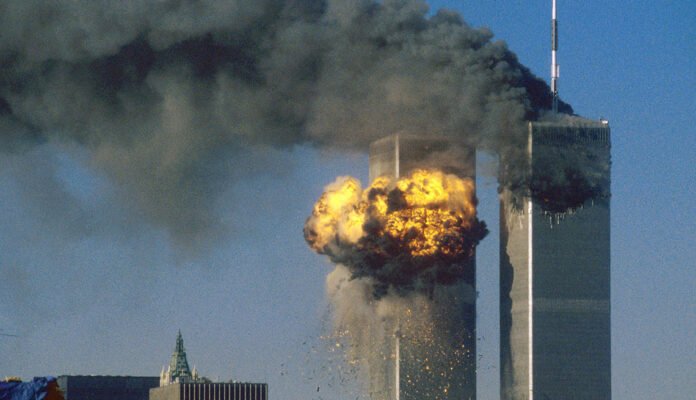Every nation condemns terrorism to appear morally upright, but the human mind, being a contested area of multiple narratives, sees the same states cultivating terrorism as a tool of convenience. In that context, a moral paradox arises, the paradox of dealing with terrorism.
As an idea, terrorism has a strong historical lineage. It has, however, evolved over the years. The end of the Cold War and the rise of globalisation saw the rise of a new form of terrorism – religiously motivated. This manifested itself in Islamist terrorism, the most violent expressions of which were witnessed by the world in the 9/11 terror attacks on American soil, numerous attacks across the world perpetrated by Islamist terrorists, and the rise and fall of the Islamic State of Iraq and Syria.
This underscores the transnational nature of terror threats. What is worrying is that while countries around the world have pledged to form a united front in the fight against terrorism in ‘all its forms and manifestations’, these commitments, unfortunately, remain moral platitudes at best.
One particular episode in this context highlights how the global fight against terrorism ultimately falls victim to the necessities of realist statecraft and the imperatives of making ‘national interest’ the object of paramount importance.
Syrian leader Ahmed Al Sharaa’s astounding rise in both regional and global politics, thanks to American support, is a clear sign that the US is pursuing a realpolitik approach to its security interests in the Middle East
The Questionable Actions of American Statecraft
The United States’ recent overtures to Syria through the newly inaugurated political regime are reflective of a realpolitik-infused moral relativism. In a lightning-fast offensive, opposition forces toppled the government of Bashar al-Assad in December 2024.
The architect of the offensive and the new face of the post-Assad phase in Syria is now Ahmed Al Sharaa. Also known as Abu Mohammed Al Jolani, Sharaa became the president of a transitional government in Syria in January 2025. Moving swiftly, he undertook a major restructuring of Syria’s relationship with the West.
Remarkably, a few days ago, the new Syrian ‘president’ met with US President Donald Trump at the White House, with the latter vowing to take all necessary steps to revive Syria after the brutal civil war. Al Sharaa also agreed to join the US coalition fighting against the Islamic State.
But a look at the Syrian president’s past would create an immediate sense of discomfort. He joined Al Qaeda in Iraq to fight against the US occupation of the country in 2003. He, however, was detained by American forces and kept in a detention facility at Camp Bucca, Iraq, from 2006 to 2011. Following his release, he formed and eventually led the Al Nusra Front (later known as Hayat Tahrir Al Sham), which fought the Assad forces, the US, and US-supported groups.
Using cultural and social justifications in defending terrorism, irrespective of the notion of national interest, is ethically wrong and does a great disservice to the victims of terrorism, says American philosopher Kai Nielsen
Ahmed Al Sharaa’s astounding rise in both regional and global politics, thanks to American support, is a clear sign that the US is pursuing a realpolitik approach to its security interests in the Middle East. This policy is being driven by two considerations:
-
To assist Israel in stabilising its north-eastern border, which has been a theatre of conflict many times, both in the past and the present.
-
To fill the void created by the Russians’ ostensible disengagement from Syria and the broader Middle East owing to their protracted war in Ukraine.
Notwithstanding the ‘noble’ nature of American aims and the realpolitik considerations of the Trump administration, what is baffling is how fast and loose the United States of America is playing with a subject as critical as terrorism.
It was the US that first sounded the bugle in the fight against global religious terrorism following the World Trade Center bombings in 2001. It was the US that forged an international coalition through the ‘War on Terror’ campaign that undertook the devastating invasions of Iraq and Afghanistan, the latter to wipe out terror infrastructure sponsored by Al-Qaeda and backed by the Afghan Taliban.
In courting figures like Al Sharaa, the United States is abdicating the moral claim of standing tall in the fight against terrorism. The United States is exposing the moral duplicity in its fight against global religious terrorism
It is truly lamentable that the very country that professed to wipe out global religious terrorism is courting a figure with such a controversial track record. In this context, intellectual figures in the US, such as the 20th-century American moral philosopher Kai Nielsen, critiqued the application of moral relativism to the phenomena of terrorism. He pointed out that using cultural and social justifications in defending terrorism, irrespective of the notion of national interest, is ethically wrong and is doing a great disservice to the victims of terrorism, ethnic cleansing, and other grisly crimes.
In courting figures like Al Sharaa, the US is abdicating the moral claim of standing tall in the fight against global religious terrorism. What it is doing to the American counterterrorism reputation, instead, is exposing the moral duplicity of the US in its fight against global religious terrorism.
The United States’ rehabilitation of such a controversial figure reveals an uncomfortable truth — nations pay lip service to the goal of tackling terrorism, but when the time comes, they prioritise their national interests. This, however, serves as a moral insult to the victims of terrorism everywhere — from Raqqa to Mumbai.
–The writer is currently working as a Research Associate at Defence Research and Studies (dras.in) and is a columnist. The views expressed are personal and do not necessarily reflect the views of Raksha Anirveda






